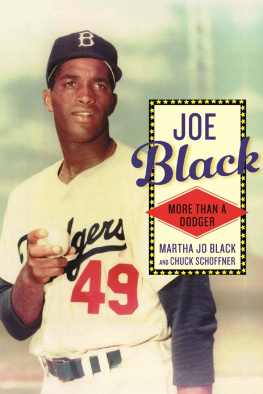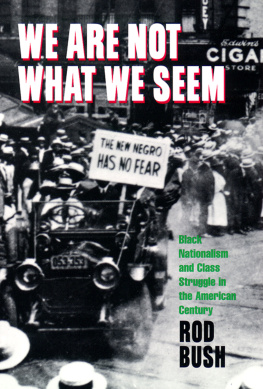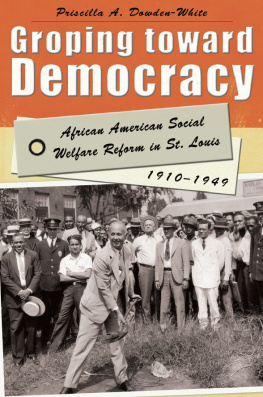2012 Felix L. Armfield
All rights reserved
Manufactured in the United States of America
C 5 4 3 2 1

This book is printed on acid-free paper.
Library of Congress Cataloging-in-Publication Data
Armfield, Felix L. (Felix Lionel)
Eugene Kinckle Jones : the National Urban League and Black social work, 191040 / Felix L. Armfield.
p. cm.
Includes bibliographical references and index.
ISBN 978-0-252-03658-3 (cloth)
1. Jones, Eugene Kinckle, 18851954.
2. African American social reformersBiography.
3. National Urban LeagueHistory20th century.
I. Title.
HN64.A76 2011
303.48'4092dc23 [B] 2011029266
Acknowledgments
This work would not have been possible had my mentor Darlene Clark Hine not insisted that I look at the papers of the National Urban League. I approached this project with some reluctance and did not understand all that Professor Hine was expecting of it. I suppose she forgave my graduate-student innocence. Words could never thank her enough for the time and energy she has devoted to this project. Her stellar mentoring continues to inspire a new generation of historians.
In addition to Professor Hine, several other individuals scholarship and teaching assisted this project and me as a graduate student. Dr. Fred Honhart read and commented on every page of my dissertation with unwavering attention; I thank him for his enormous support. Professors Harry Reed and David Robinson were crucial to my early development in graduate studies. Their seminars challenged me to think in meaningful and helpful ways. Professor Richard Thomass teachings on race relations and the black urban condition introduced me to new ways of organizing the black community. Professor Thomas, thanks for all the self-help. In addition to my Michigan State University mentors, a number of individuals have supported me and my work. Ms. Linda Werbish was always available to assist me and saw to it that my deadlines and timetables were appropriately met. I owe Professor Rosalyn Terborg-Penn of Morgan State University for all her continued support. Dr. Terborg-Penn first introduced me to the Jones family; I could not have completed this project without her. In addition, thanks to all of my professors at North Carolina Central University for demanding nothing less than my best.
I would be remiss if I did not thank my colleagues at Western Illinois University for all their support and encouragement from every entity of the institution. My friends and colleagues in the Department of History and African American Studies were supportive of this project from the dissertation phase onward. However, the historian Larry Balsamo read every page of the dissertation in rough draft, and his comments challenged me to think and write with greater clarity. His dedication will long be remembered. The historian Tom Watkins gave me my first lessons on Cornell University, his alma mater. Watkins shared with me his personal collection of materials on Cornell, and I truly thank him and his wife, Sharon Watkins, for sharing their library with me. In addition, I wish to thank my new family of colleagues at Buffalo State College for helping to create a conducive environment for my research.
The library staff at Western Illinois University deserves more thanks than I could ever offer here for their unceasing assistance. The reference department proved to be my greatest asset. John Steinman and Kathy Dahl were always available to answer my questions, and Kathy found resources that only an excellent reference librarian could have located. No query or request was too monumental for her. The staff of the Social Welfare History Archives assisted my research with enthusiasm. The people at the Virginia State Archives were very helpful, providing me with all requested materials in a timely manner. Cornell University Archives staff also provided helpful information by revealing Eugene Kinckle Joness student records. Ms. Beth Howse, the Special Collection Librarian at Fisk University Archives, was helpful during my search. In addition, she is the granddaughter of one of the founding members of the original Fisk Jubilee Singers.
Since graduate school, this work on Eugene Kinckle Jones has taken on new life. I have had far more conversations than I care to recall. I am grateful to many friends, colleagues, mentors, and students who had no choice but to listen. There have been many late-night talks while attending the annual meetings of the Association for the Study of African American Life and History and the Organization of American Historians. Thanks to a host of historians and colleagues for engaging me: Richard Pierce, Priscilla Dowden-White, Elsa Barkley Brown, Stephanie Shaw, Thavolia Glymph, Freddie Parker, Leslie Brown, Annie Valk, Shirley Portwood, Stefan Bradley, Derrick Aldridge, Chana Kai Lee, Lillian Williams, Betty Gardner, June O. Patton, Wanda Hendricks, Dana Ramey-Berry, Michelle Mitchell, Carlton Wilson, Lydia Lindsey, Ula Taylor, Paul Ortiz, Nikki Taylor, Scott Brown, Allison Dorsey, Vincent P. Franklin, and Linda Causey. A thoughtful thanks belongs to my social-work-scholar sisters, Drs. Iris Carlton-LaNey and N. Yolanda Burwell. They helped me to begin thinking like social workers. A very special thanks goes to the historian Genna Rae McNeil for taking time out from her own work to read my manuscript in its entirety over 20034. Professor McNeil asked hard questions and encouraged me to improve my work in areas I might have otherwise overlooked; she is a first-rate biographer and a gracious mentor. In addition, my support network at Buffalo State College continues to be vital. To my newfound friends and extended family in the city of Buffalo, I am eternally grateful. Moreover, Professor Robert Harris of Cornell University, the national historian of Alpha Phi Alpha fraternity, gave me the most rewarding review of my work to date. His critique was thorough and saved me major mistakes in the final draft. His devotion to this project is unparalleled; Professor Harris helped to make this a worthwhile work.
I could not have made it through the graduate program at Michigan State University had it not been for the support of some friends in particular. To Jacqueline McLeod, thanks for being the dearest friend I could have ever hoped for. Randall Jelks, thanks for being my soul brother. Quince and Kelly Brinkley helped me to keep it all real, despite what I may have been up against. My best friend on the planet, Diane Cookie Pippins, has been my reality check longer than I care to recall these days. Last but certainly not least, Judge Taylor, Greg Osborn, Darryl Daniels, Brent Price, Gerald Todd, and Ray Howell: thanks for teaching me how to exhale.
I am grateful for the time that Betty Jones Dowling, Eugene Kinckle Joness granddaughter, allowed me to spend with her as she made all the family photos available within this publication.
Im glad I know the meaning of family. My family continues to be a constant force in my life. I am truly blessed to have my paternal grandmother, Christine Jenkins Armfield, who always reminded me to whom I belonged. I thank my sister, Kimberly Armfield, for all her financial and emotional support over the years. My folks, Jasper and the late Alice Armfield: thank you for all the support over the years. I thank my brother, Jeff Armfield, and his family for always cheering me on. And in recent times I have realized that life is tenuous at best. Hopefully this helps to begin to repay all of you in some small way. I can honestly say to you all: Your helpings of soul food have been sufficient.






 This book is printed on acid-free paper.
This book is printed on acid-free paper.